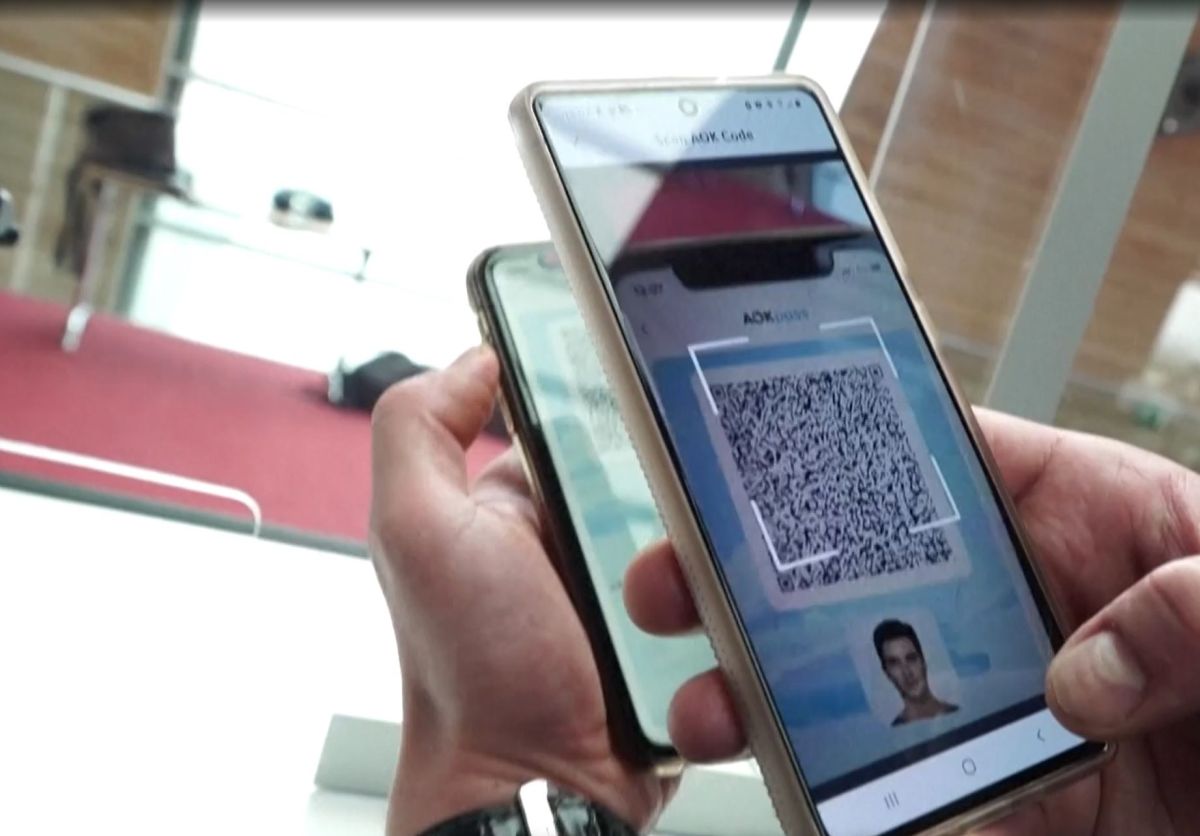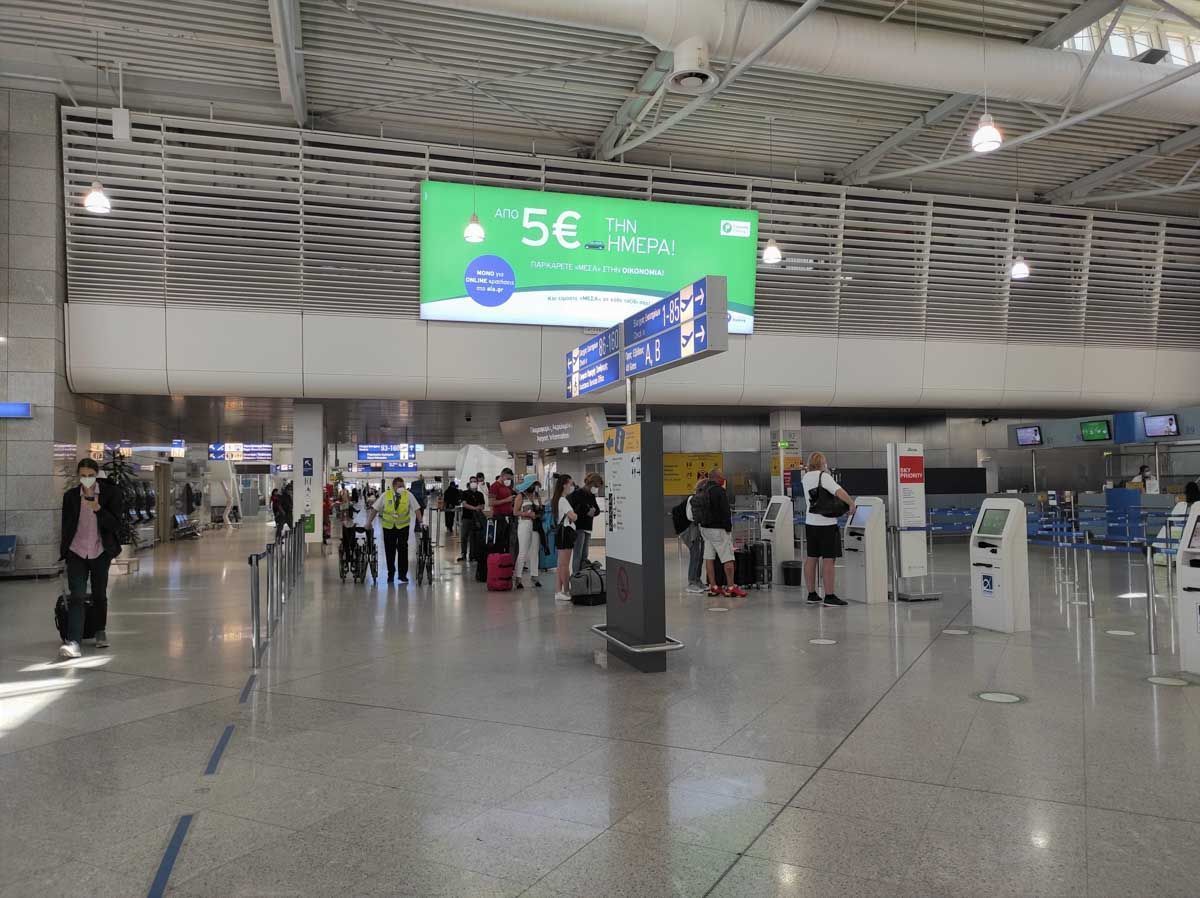The Hellenic Civil Aviation Authority (HCAA) on Monday issued an update to the Covid-19 aviation directive (NOTAM) that includes the rules that passengers must follow when traveling on domestic flights to all destinations in Greece.
The update to the NOTAM concerns the requirement for unvaccinated travelers who have recovered from Covid-19 and present proof of recoveryto fly on domestic flights.
What’s new
According to the updated NOTAM, Covid-19 recovery certificates are now valid for only 90 days (instead of the previous 180 days) to board domestic flights in Greece.
The announcement follows the recent decision of the Greek government to reduce the validity period of the Covid-19 recovery certificate from the initial six months to three months on the guidance of the country’s committee.
As highlighted by the HCAA, travelers who have recovered from Covid-19 and want to travel on domestic flights in Greece must present documentation that has been issued 30 days after the first positive Covid-19 test. The certificate must be issued from a licensed health care provider and must state that the holder has recovered from Covid-19 in the 90 days preceding the date of travel.
The HCAA notes that recovery certificates issued between July 15, 2021 and October 31, 2021, remain in effect according to previous rules.
It is reminded that people can fly domestic in Greece also if they hold a vaccination certificate or a negative PCR/rapid antigen test.
The aviation directive, which has been in force since September 13, is part of the Greek government’s efforts to curb the spread of the coronavirus (Covid-19) in the country.
Details on the rules to board domestic flights in Greece follow below.
Covid documents needed to board domestic flights
Travelers (residents and foreign visitors) aged 12 and over in Greece are allowed to travel on domestic flights only if they have one of the following:
1) a vaccination certificate stating that 14 days have passed since full vaccination for Covid-19.
Greeks can issue their vaccination certificates here.
Foreigners are obliged to have a vaccination certificate in one of the following languages: English, French, German, Spanish, Italian or Russia. The vaccination certificate must be issued by a public authority, include the travelers’ name, the type of vaccine administered and the number of doses.
Alternatively, travelers may present, in digital or printed form, an EU Digital COVID Certificate (or a similar certificate from a non-EU country) as proof that a person has been vaccinated against Covid-19 or has a negative test result or recovered from the coronavirus.
2) a recovery certificate – UPDATED. Travelers can present a medical/recovery certificate issued thirty days after they first tested positive for Covid-19 (the certificate is valid for 90 days after its issue date). The certificate must be issued by a public authority or a certified laboratory in one of the following languages: English, French, German, Italian, Spanish or Russian.
3) a negative rapid antigen test taken 48 hours prior to travel.
Greeks can issue their test result here.
Foreigners must have a negative test in one of the following languages: English, French, German, Spanish, Italian or Russian.
Negative test results can be in print or electronic form.
Minors
Passengers aged 4 to 17 can present a negative self-test result (either in print or electronic form) taken at least 24 hours before travel, to board a flight.
The self-test declaration form can be accessed here. Travelers will have to print it out, write their negative test result, sign it and then present it when requested at the airport along with identification (passport).
Travelers can also present their negative test result in digital form (TaxisNet codes and AMKA social security number are necessary).
Masks are mandatory
At the arrival and departure areas inside airports, as well as during all domestic and international flights, staff and passengers are required to wear a face mask at all times.
Passengers that do not wear masks will not be allowed to board airplanes to travel.
Moreover, passengers are required to comply with the instructions of the airport or airline staff who are responsible for supervision, crowd management and passenger assistance, in order to maintain the necessary distances and to ensure safe boarding/disembarkation to avoid overcrowding.
The compulsory travel documents passengers must have with them are checked by airline staff. According to the HCAA, airline staff is obliged to ascertain that travelers have all the necessary documentation before they board flight in Greece.
Travelers are advised to also contact their travel agent or airline to confirm the requirements before their trip. Those in need of information regarding specific details are recommended to contact their embassy or the General Secretariat for Civil Protection.
Source: news.gtp.gr



